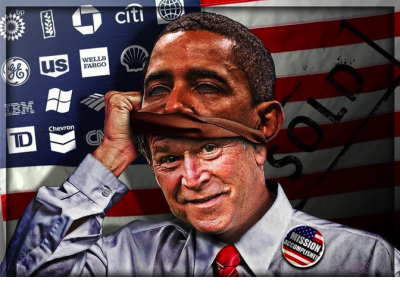|
Announcement
Collapse
No announcement yet.
Hudson: A World Up For Grabs?
Collapse
X
-
Hudson: A World Up For Grabs?
Tags: None
-
Re: Hudson: A World Up For Grabs?
an appropriate quote . . .
In the 1970s, I met Leni Riefenstahl and asked her about her films that glorified the Nazis. Using revolutionary camera and lighting techniques, she produced a documentary form that mesmerised Germans; it was herTriumph of the Will that reputedly cast Hitler’s spell. I asked her about propaganda in societies that imagined themselves superior. She replied that the “messages” in her films were dependent not on “orders from above” but on a “submissive void” in the German population. “Did that include the liberal, educated bourgeoisie?” I asked. “Everyone,” she replied, “and of course the intelligentsia.”
John Pilger
-
Re: Hudson: A World Up For Grabs?
The strength and Achilles heel of both Japan and Germany is their willingness to blindly follow authority and engage in social obedience. The weakness of the US is failing to realize that nation building on the basis of our former WWII antagonists was dependent on these traits.Originally posted by don View Postan appropriate quote . . .
In the 1970s, I met Leni Riefenstahl and asked her about her films that glorified the Nazis. Using revolutionary camera and lighting techniques, she produced a documentary form that mesmerised Germans; it was herTriumph of the Will that reputedly cast Hitler’s spell. I asked her about propaganda in societies that imagined themselves superior. She replied that the “messages” in her films were dependent not on “orders from above” but on a “submissive void” in the German population. “Did that include the liberal, educated bourgeoisie?” I asked. “Everyone,” she replied, “and of course the intelligentsia.”
John Pilger
Comment
-
Re: Hudson: A World Up For Grabs?
This is an extremely perceptive observation. Thanks!Originally posted by gwynedd1 View PostThe strength and Achilles heel of both Japan and Germany is their willingness to blindly follow authority and engage in social obedience. The weakness of the US is failing to realize that nation building on the basis of our former WWII antagonists was dependent on these traits.
It triggered the following thought in me:
It's no secret here that I've come to see cultural misunderstandings as a key component of strife, and a major dynamic of international politics. But I think the US is not so much guilty of fallacies of extrapolation from our own culture - which is an error more dominant in Europe - as it is guilty of falsely extrapolating between different external cultures.
Put another way, it seems that the US state department has learned - the hard way at times - that we can't assume other states will act as we would. But it still seems to struggle with the idea that other states can be much more different from one another than they are different from ourselves. As different as the middle east is from the US, it is far further removed culturally from Japan and Germany.
One wonders how this translates into the viability of different monetary philosophies in, for example, the middle east, or the Ukraine. I confess to knowing little of the relevant cultures, but am curious about what thoughts others might have on the subject.
Comment
-
Re: Hudson: A World Up For Grabs?
Binney recently told the German NSA inquiry committee that his former employer had a “totalitarian mentality” that was the “greatest threat” to US society since that country’s US Civil War in the 19th century.
William Binney is one of the highest-level whistleblowers to ever emerge from the NSA. He was a leading code-breaker against the Soviet Union during the Cold War but resigned soon after September 11, disgusted by Washington’s move towards mass surveillance.
“…An empire is a despotism, and an emperor is a despot, bound by no law or limitation but his own will; it is a stretch of tyranny beyond absolute monarchy. For, although the will of an absolute monarch is law, yet his edicts must be registered by parliaments. Even this formality is not necessary in an empire.” John Adams (1735-1826), 2nd American President
“Politically speaking, tribal nationalism always insists that its own people is surrounded by “a world of enemies”, “one against all”, that a fundamental difference exists between this people and all others. It claims its people to be unique, individual, incompatible with all others, and denies theoretically the very possibility of a common mankind long before it is used to destroy the humanity of man.” Hannah Arendt (1906-1975), The Origins of Totalitarianism, 1951
“War is mankind’s most tragic and stupid folly; to seek or advise its deliberate provocation is a black crime against all men.”, President Dwight Eisenhower, 1947 commencement speech at West Point
“I believe in American exceptionalism with every fiber of my being. But what makes us exceptional is not our ability to flout international norms and the rule of law; it is our willingness to affirm them through our actions.” President Barack Obama, May 29, 2014 commencement speech at West Point

Last edited by don; July 12, 2014, 09:32 AM.
Comment
Comment